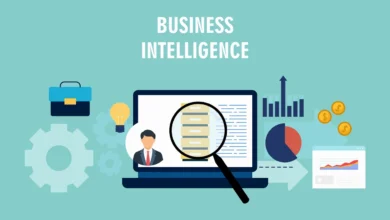Human Error No More: How Automated CPQ Pricing Ensures Accuracy and Consistency

What is CPQ?
Configuring, pricing, and quoting are critical for businesses aiming to optimize and simplify their sales operations. CPQ software plays a crucial role in helping sales teams handle the configuration of intricate products, accurately determine pricing, and swiftly generate quotes. Before the introduction of CPQ software, this process relied heavily on manual input, making it labor-intensive and susceptible to errors. Sales representatives had to configure products manually, calculate prices based on diverse factors, and then generate quotes, leaving plenty of room for human mistakes and discrepancies. This manual approach often led to delayed response times, unsatisfied customers, and missed business revenue opportunities.
Manual vs. Automated CPQ Pricing
Previously, companies relied on manual CPQ (Configure, Price, Quote) pricing procedures. This involved using spreadsheets and manual calculations, which often resulted in inefficiencies and errors. However, introducing automated CPQ solutions transformed this process, greatly enhancing its efficiency and accuracy. Automation eliminates tedious manual work, allowing sales teams to concentrate on more value-added activities. For a comprehensive understanding of the functioning of automated CPQ, you can delve deeper into the CPQ pricing page. Automated CPQ systems can seamlessly integrate with other company software, ensuring that all data is consistently updated and synchronized. This integration significantly reduces the likelihood of errors and enhances overall operational efficiency.
Benefits of Automated CPQ
Automated CPQ systems offer numerous advantages over manual methods:
- Increased Efficiency: Thanks to automation, sales teams can now reply to customer requests more quickly, dramatically speeding up the quotation-generating process. The shorter reaction time might be necessary in competitive marketplaces where quick turnarounds can make a big difference.
- Accuracy: When calculations are automated, the likelihood of human error decreases significantly. This results in precise and consistent pricing, ensuring clients receive accurate quotes. As a result, the risk of disputes is minimized, and trust between the parties is strengthened.
- Improved Customer Experience: Faster and more precise quotations raise customer satisfaction. When customers obtain accurate and fast quotations, their entire experience with the business improves, which increases client loyalty and retention.
- Scalability: Automated systems can handle increased volumes without a drop in performance. As businesses grow, automated CPQ systems can quickly scale to accommodate higher demand, ensuring that the sales process remains efficient.
CPQ systems revolutionize B2B sales strategies by enhancing speed, accuracy, and scalability, enabling businesses to close deals more efficiently and gain a competitive edge.
Implementing Automated CPQ Pricing
Implementation of an automated CPQ system requires careful planning and execution. Here are some steps to consider:
- Evaluation: Assess your current CPQ process to identify bottlenecks and areas of improvement. Conduct a thorough analysis to understand where manual processes are causing delays or errors and determine the potential benefits of automation.
- Selection: Select a CPQ program that complements your current systems and fits your company requirements. To choose the best CPQ solution for your company, compare various options according to features, scalability, simplicity of integration, and user-friendliness.
- Training: Provide adequate training to your sales team to ensure a smooth transition. Familiarize your team with the new system, features, and functionalities to maximize its potential and reduce resistance to change.
- Monitoring: Continuously monitor the system’s performance and make adjustments as needed. Track key performance indicators (KPIs) to measure the effectiveness of the CPQ system and identify areas for improvement.
Challenges in Adoption
While automated CPQ systems offer numerous advantages, there are challenges to consider:
- Cost: It might be expensive to make the initial investment, particularly for small firms. Nonetheless, the long-term advantages of higher accuracy and efficiency frequently outweigh the initial expenses.
- Integration: Ensuring the CPQ system integrates seamlessly with existing systems can be complex. Compatibility and data migration challenges may arise, requiring careful planning and execution.
- Change Management: Employees may resist changes to their workflow, necessitating robust change management strategies. Clear communication, training, and support are essential to help employees adapt to the new system and embrace the benefits of automation.
Addressing these issues calls for a comprehensive strategy that includes organizational change management and technological solutions to achieve a seamless transition and effectively implement the automated CPQ system.
Case Studies and Examples
Several companies have successfully implemented automated CPQ systems with great results:
- Company Aachieved 50% faster quotation generation and much higher sales efficiency. By automating the CPQ process, the sales force was able to concentrate on fostering connections with customers and completing deals, which increased revenue and led to growth.
- Company B: Improved accuracy of quotes, leading to higher customer satisfaction and retention. The consistent and error-free pricing provided by the CPQ system helped build customer trust and enhanced the company’s reputation for reliability.
- Company C: Scaled operations efficiently during peak times with no drop in performance. The automated CPQ system enabled the company to handle increased demand without compromising the quality or speed of service, ensuring a seamless customer experience.
These examples demonstrate the transformative potential of automated CPQ systems, showcasing how businesses across various industries have significantly leveraged automation to improve their sales processes and overall performance.
Future of CPQ Pricing
The future of Configure, Price, Quote (CPQ) pricing solutions appears promising, thanks to the rapid advancements in artificial intelligence and machine learning. These cutting-edge technologies are poised to improve the precision and efficiency of CPQ systems significantly. AI-powered CPQ platforms can analyze extensive datasets, enabling them to offer personalized and optimized pricing recommendations. Furthermore, machine learning algorithms may continuously improve performance by learning from past data and user interactions.
Final Thoughts
Transitioning from manual to automated CPQ (Configure, Price, Quote) pricing is a significant and transformative process for any business. This shift presents unique challenges, but the advantages far surpass the initial hurdles. Embracing automation empowers companies to streamline and optimize their sales processes, increasing accuracy and enhancing customer satisfaction. The future of CPQ pricing looks promising, with continuous technological advancements offering opportunities for even greater efficiencies and expanded capabilities in the industry.



